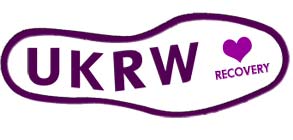http://www.williamwhitepapers.com/pr/2011%20Scotland%20Anne%20Marie%20Ward.pdf
It starts off
In 2009, I had the pleasure of lecturing in London and Scotland on the New Recovery Advocacy Movement in The United States. During that trip, I met a number of professionals interested in increasing the recovery orientation of the UK treatment system, and I also met many members of a growing UK recovery advocacy community. One of the more memorable of these encounters was with Anne Marie Ward, who I suspected would develop into one of the most dynamic leaders of the UK recovery movement. In the time that has passed since my visit, that presentiment has proven to be correct. In early 2011, I interviewed Anne Marie about her advocacy activities and her thoughts on the history and future of the UK recovery movement. Please join us in what I found to be a most fascinating discussion.
Bill White: Anne Marie, perhaps we should begin by having you introduce yourself to our readers and share how you came to be involved in the recovery movement in the UK.
Anne Marie Ward: Sure, Bill. As a person in long-term recovery, I began about 9 years ago in a professional role to explore how local statutory services could be more involved in helping individuals and families who were suffering from addiction. Part of my role then was to develop a forum whereby service providers could discuss with those they were supposed to serve various issues that the statutory services felt were important. It quickly became apparent that the two groups couldn’t be further apart in what they each identified as important. The beginning of my role as an advocate began from my experience in that role, witnessing people’s voices not being heard, and the powerlessness they expressed. During my time in this role bringing various providers of services together, it was also very clear that providers worked in competition, isolation, and even in conflict with each other. They were often unaware of what each organisation provided, which was a great hindrance to people accessing the services they needed.
Please click on the link to Bills site to see the rest and other interviews, more from the UK coming soon !


4 comments:
Great interview. I'm very interested in the recovery cafes.
Do you also have something like our alano clubs?
not sure what the alano clubs are Jason? in Glasgow we have a building known as "the rooms" its open about 8 hrs of the day for tea and meetings, or at least it used to be (i live quite far from Glasgow)but dont know of anywhere else like the Glasgow rooms in the UK. Could you let us know what the alano clubs are?
Alano clubs sound similar to the rooms. Their sole function is to provide meeting space to 12 step groups.
They vary quite a bit, but a typical alano club has several meetings a day. Our local club has AA, Alanon, ACOA, Gambler's Anonymous and Sex Addicts Anonymous meetings. They also often have a snack counter, TV and pool table. They often have events like card tournaments, dances, holiday parties and softball teams.
They can be an important part of the recovering community but they can also become places where the weaker meetings happen. The can become the place where people who are struggling hang out all day and the culture can suffer.
The are usually private, nonprofit organizations and usually encourage people to become members. Nonmembers can attend meetings and events but may pay more for events. They also have a volunteer board made up of elected members.
Thanks jason i like the idea of the non profit and transparency. It reminded me of these in an earlier blog.
This historical legacy and current sentiments within grassroots recovery community organistions (RCOs) would suggest 10 characteristics that define authentic RCOs and that can help RCOs manage threats to their authenticity. Authentic RCOs are organized by and for individuals and families in recovery. Toward that end, they :
1. Assure recovery representation (maintain recovery representation greater than 50% at membership, board, and staff levels)
2. Assure recovery leadership (leaders are drawn from individuals and family members in recovery or allies vetted by communities of recovery; RCO is committed to peer leadership development activities)
3. Maintain singularity of purpose (focus is on addiction recovery as evidenced by their mission, core values, plans and activities)
4. Minimize problems of “double agentry” (people in key leadership roles do not also represent other institutional—ideological, political, financial— interests that could undermine the mission of the RCO)
5. Seek diversification of funding (efforts are made to minimize the risk of colonization or corruption of organizational values by external authorities;
funding is rejected that comes with requirements that would compromise service relationships and relationships with communities of recovery)
6. Focus on long-term recovery at personal, family and community levels (recovery viewed as a process of intrapersonal, interpersonal and environmental transformation)
7. Distinguish their roles (from recovery mutual aid fellowships, professional treatment agencies and other agencies within the alcohol and other drug problems arena)
8. Respect multiple pathways of long-term recovery (recognise the legitimacy of multiple pathways of recovery and the rights of individuals/families to choose those pathways that best fit their needs and values)
9. Cautiously collaborate with kindred organisations (while resisting affiliations that would compromise their autonomy, integrity and mission)
10. Are responsible stewards (places recovery-focused services over personal or institutional aggrandizement and profit)
Post a Comment